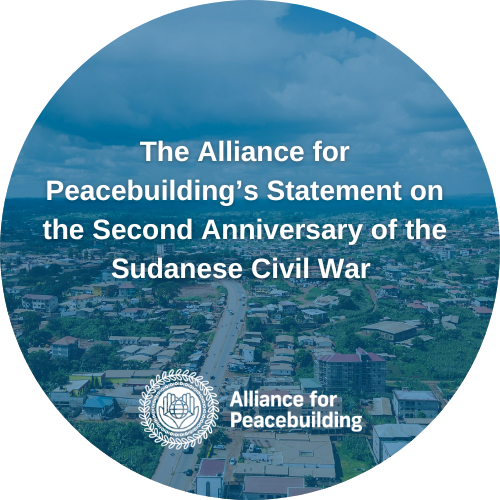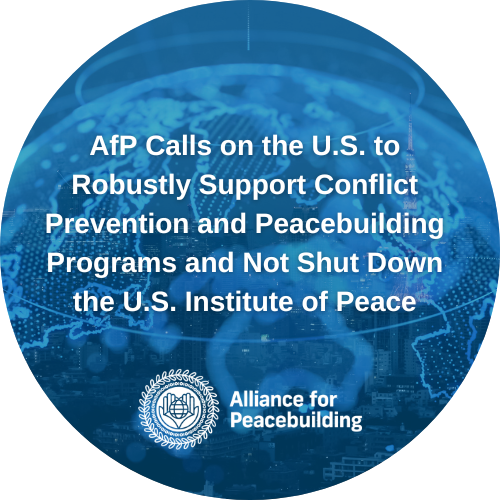On April 30th, in light of the proposed reorganization of the State Department by the Trump Administration, AfP sent a letter signed by 24 other organizations to Secretary of State Marco Rubio urging him to retain conflict experts, ensure a clear and dedicated entity charged with implementing key prevention laws, and robustly integrate conflict prevention and peacebuilding throughout all assistance and diplomacy in conflict-affected and fragile states.
Read MoreThe American University Conflict Mitigation and Peacebuilding Practicum team partnered with Alliance for Peacebuilding (AfP) to explore the challenges of measuring progress in the attainment of Sustainable Development Goal 16 (SDG 16) and potential lessons for the design of the 2030 Agenda for Sustainable Development.
Read More







